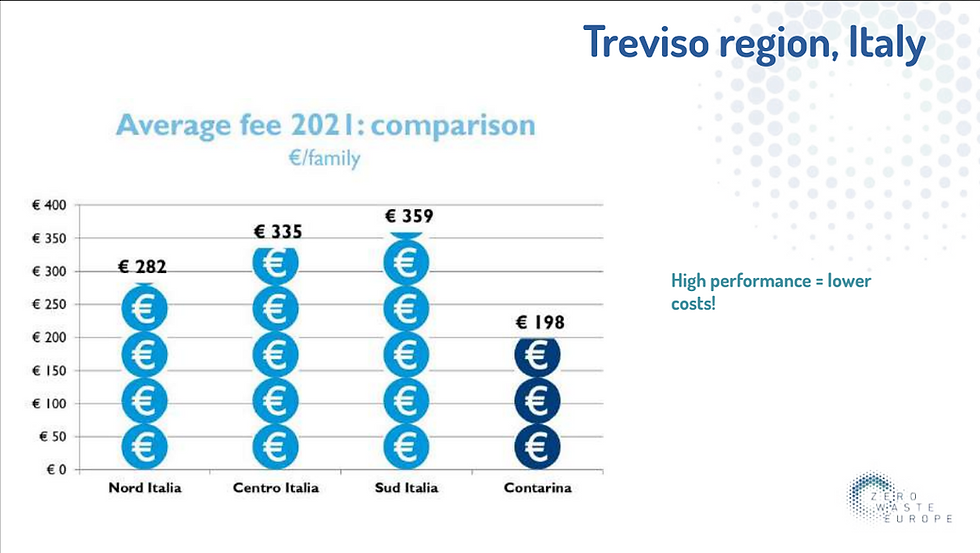Zero Waste Europe Comes to Mapo-Gu, Seoul: A Forum Where Policy Meets People
- Jina Song

- Aug 9, 2025
- 4 min read
Zero Waste is a mission you’ve probably all heard of before. Stapled as SDG 12, Responsible Consumption and Production, Zero Waste is a crucial initiative of the United Nations Department of Economic and Social Affairs.
But when a community’s greatest risk is an impending incinerator plan—not the first, but the second one in the neighborhood alone—the agenda of zero waste amplifies into something bigger than an eco-friendly catchphrase. Tangible strategies to achieve zero waste are indispensable.
Held on June 30, 2025, the international forum began with a “Mapo Zero-Waste Launching Ceremony” (마포구자원순환네트워크 발족식) led by the leaders of the Sangamdong Anti-Incinerator Organization. “On top of the past of the Nanji-Do, a new 750-ton incinerator was proposed. But we, the Sangamdong citizens, did not stay still. Our neighbors took action when the government faltered. And we will continue to take action until our nature is firmly protected.” The leaders of the Mapo Waste forum are currently navigating solutions for a zero-waste Mapo-Gu, focusing on research and real-life initiatives for zero waste. “If our city does not take action for our environment, then the people will,” said one leading advocate.

Providing refreshments in reusable plastic cups and “뻥튀기” (traditional rice crackers) plates, the forum began completely zero-waste. With vegan cookies as well, each moment of the forum was filled with actionable zero-waste steps. The forum was honored by a special guest: Jack McQuillan from Zero-Waste Europe shared insights about a zero city. “I’m joining over Zoom today... to cut the immense Carbon emissions I might have generated if I flew all the way from the UK to Korea,” said McQuillan. From refreshment choices to visiting virtually, the forum stayed true to the zero-waste goal. After all, Zero Waste forums shouldn’t merely sound nice, but act true to their name.

With over twenty non-profit organizations across the world, Zero-Waste Europe advocates for both top-down and bottom-up methods for Zero Waste cities. Their initiatives have impacted over 80 million individuals worldwide. Zero Waste Europe has a Zero Waste City certification. On a scale of 1 to 5, the organization evaluates the long-term performance, reach, and feasibility of the city’s zero waste initiatives. Guiding Zero-waste cities from planning to long-term execution, Zero Waste Europe guides cities to achieve lasting change.
Economic Benefits of a Zero Waste System
The environmental benefits of zero waste are well-known. Pollution minimization, habitat protection, biodiversity promotion—yes, we all know it’s good for our earth. But what’s in it for the people? For people and governments to truly take action, perhaps the economic viability—even benefit—of going zero-waste needs to be spotlighted.

According to McQuillan, if there’s less waste, then governments have less waste to send to incinerators. This, in turn, reduces waste collection. Moreover, composting, reusing, or recycling used items can generate more job opportunities. On average, pursuing a circular economy through repair-focused waste management can generate ten times more employment opportunities than land or incineration.
Considering a successful plan in Patagonia, the zero waste initiative progressed by reducing waste by 12.5% per year by implementing a door-to-door waste sorting strategy. Moreover, in the Treviso region of Italy, the Zero Waste master plan was followed through successfully, ultimately recycling 90% of the region’s waste. This resulted in high economic performance (with an all-time low waste management cost historically and compared to all other regions in Italy). This initiative was a “win-win for the environment and the economy,” said McQuillan. After discussing several cases, including an over 12 million dollar average cut in waste management costs in Slovakia, McQuillan underscored the undeniable benefits of a more circular economy.
Continuing Successful Zero Waste
Reflecting on the most successful cases from Zero Waste Europe, McQuillan highlighted a key commonality. None of the cities had long-term contracts with incinerators. The lack of incinerator contracts frees governments to pursue more ambitious recycling policies. Instead of incineration, McQuillan emphasizes how meticulous waste sorting can minimize waste incineration needs. “If incineration is inevitable, it should be the very last step in waste management. Only for waste that’s non-recyclable or toxic . . . this sorting step is key, or the icing on the cake, as we like to say,” says McQuillan.
Zero waste isn’t just a distant goal—it’s a decision made at every doorstep, every city hall, and every community gathering. From the Sangamdong citizens standing up against incinerators to European towns proving that circular economies are not only possible but profitable, one message rings clear: zero waste works when people act. The Mapo forum didn’t just talk about sustainability—it embodied it, plate by plate, policy by policy. As cities across the globe grapple with climate and consumption, the real challenge isn’t finding solutions—it’s choosing to implement them. And as McQuillan emphasized, the most successful cities didn’t sign away their future in the form of long-term incinerator contracts. Instead, they opened the door to innovation.
If the past was built on landfills and incinerators, the future can be built on community, creativity, and commitment. And that future starts wherever you are—whether it's at a forum, in your neighborhood, or with your next trash bag. Zero waste isn’t a trend. It’s a movement. Let’s keep it in motion.
Note: Jina attended the Mapo Zero Waste Forum as an on-site translator on June 30, 2025



